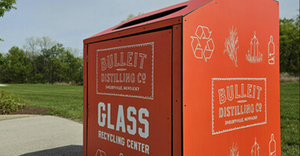Haulers and Recycling
In the past year or two, several curbside recycling programs stopped operating and a larger number of materials processing facilities (MRFs) closed. The curbside programs died because of low participation and high cost; the MRFs closed as a result of industry consolidation. Because of these events, haulers, again, are being attacked as enemies of recycling.
Public sector haulers are spared blame despite the fact that they have the same problems with recycling as private sector haulers do and they have stopped curbside programs, too. Just like their private sector brethren, public sector haulers provide a service that loses money when recycling markets are down.
The problem haulers have with recycling is simple: Hauling garbage and selling recyclables require different skills.
Collecting and processing recyclables require the same managerial and entrepreneurial skills as hauling garbage. Haulers must be able to hire and manage work crews, and buy and maintain equipment, while competing with other haulers to provide the most efficient service at the lowest cost. A good hauling operation can collect recyclables just as efficiently as it can collect garbage, and probably at about the same profit margin.
Selling recyclables requires different skills. Marketing recyclables is a form of gambling that takes place outside of casinos. In a casino, the odds always favor the house. In commodity markets, the odds favor no one. A shrewd trader usually can stay ahead, but even the best traders lose money on some deals.
Successful recyclers know that bad markets guarantee that they won't make a profit every year. They don't like losing money, but they know how to deal with their losses. This is difficult for the public sector and private sector companies - especially publicly traded companies - to master. Neither taxpayers nor investors like to lose money.
Collecting and processing recyclables is a service. Like any service, it must receive enough revenue to cover its costs. Selling commodities, like any form of gambling, can have positive and negative cash flows. In the world of curbside recycling, the cost of collecting and processing recyclables usually is higher than revenues from selling those recyclables. The shortfall is made up by taxpayers or customers.
For recycling to become an integral element of solid waste management, we must develop risk management techniques to handle fluctuating market revenues. If we are successful, haulers can concentrate on making collection and processing as efficient and inexpensive as possible.
Haulers don't hate recycling. They just don't like losing money. Neither private nor public sector haulers have a moral duty to lose money on recycling.
We need to stop playing the blame game and to start working with haulers to find ways to make recycling profitable. Because when curbside recycling is consistently profitable, we won't need to worry about its future.
Opinions in this column do not necessarily reflect the National Solid Wastes Management Association or the Environmental Industry Associations. E-mail the author at: [email protected]
About the Author(s)
You May Also Like




